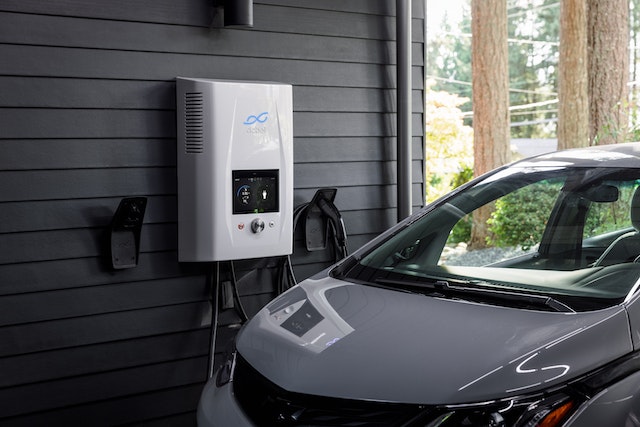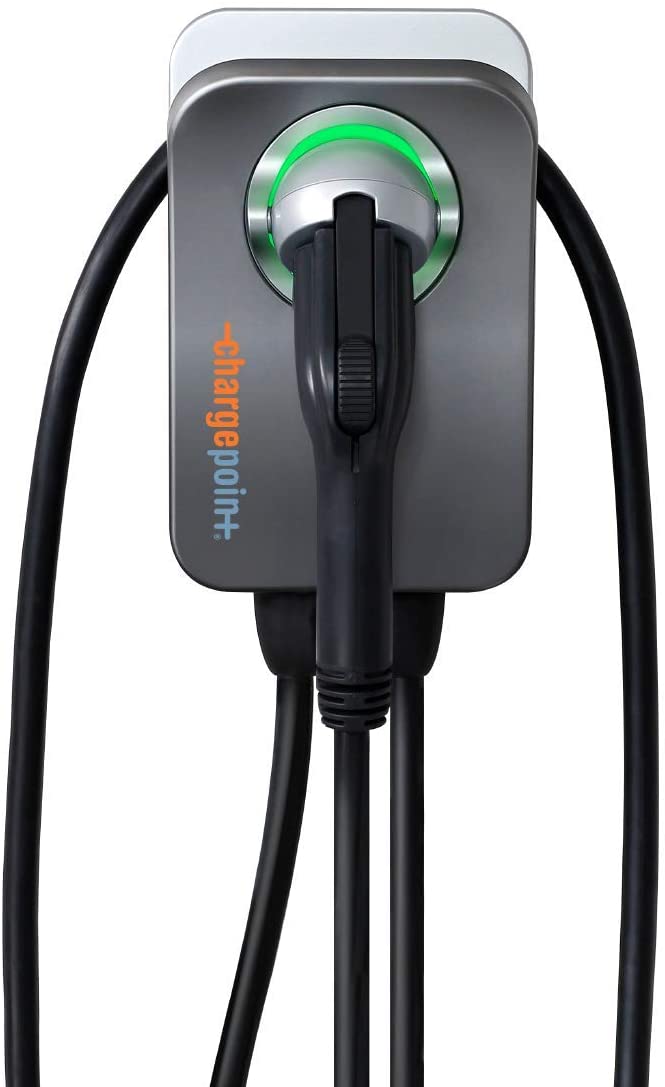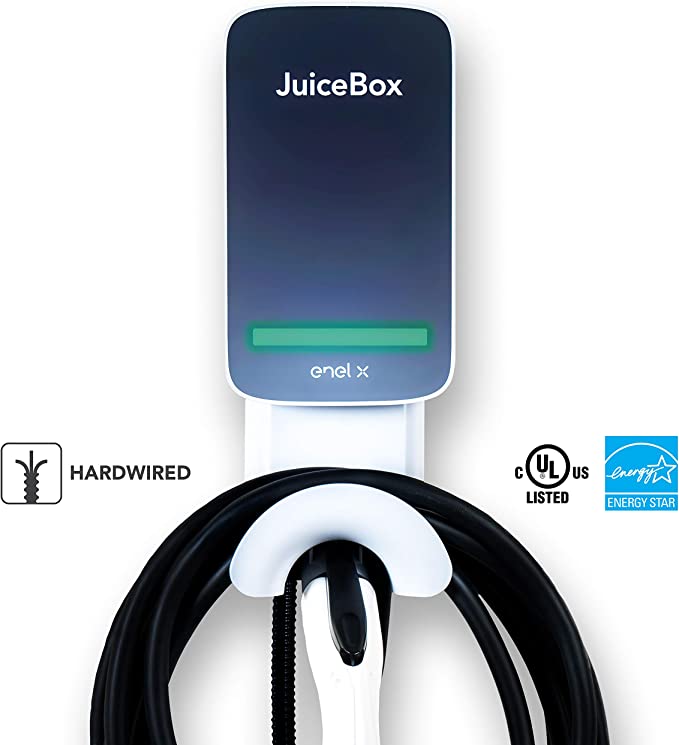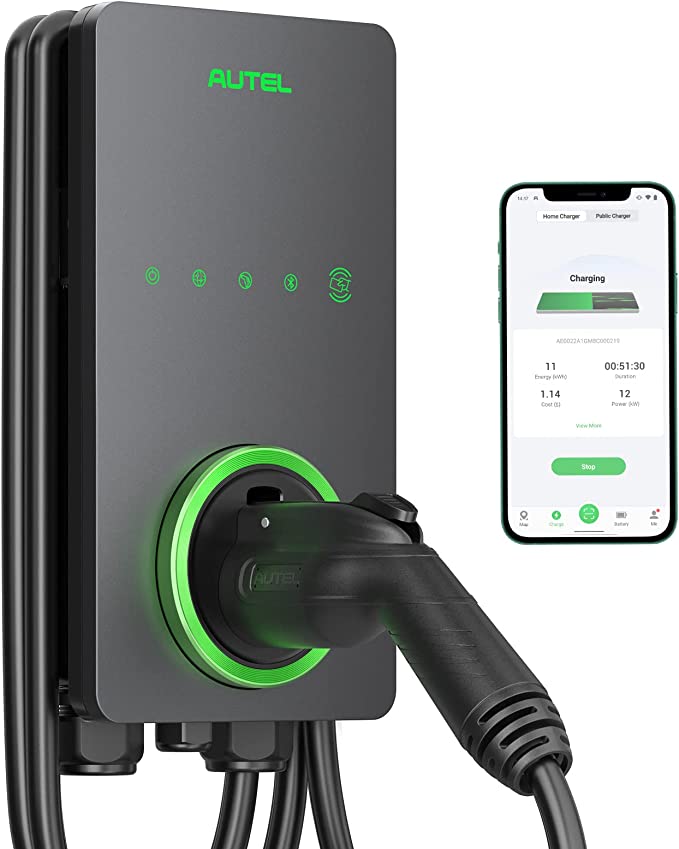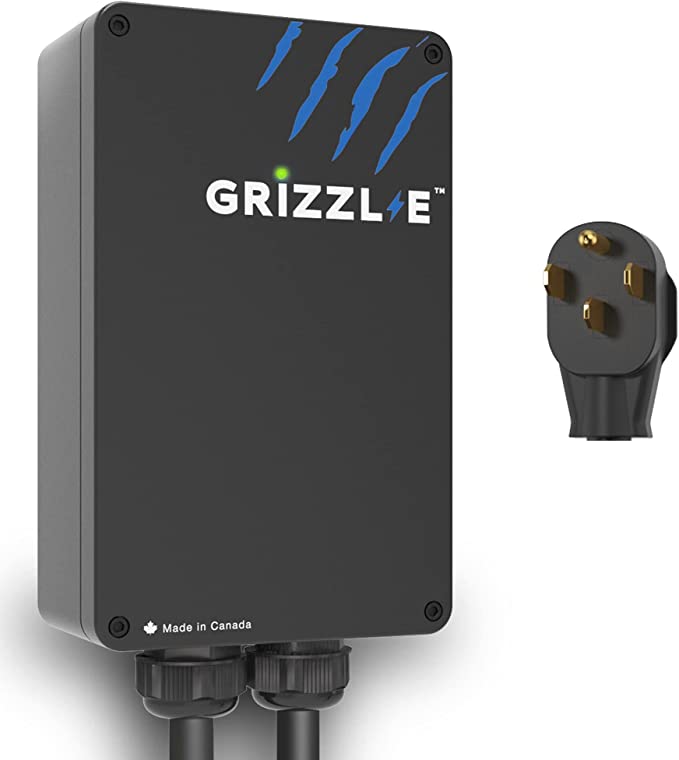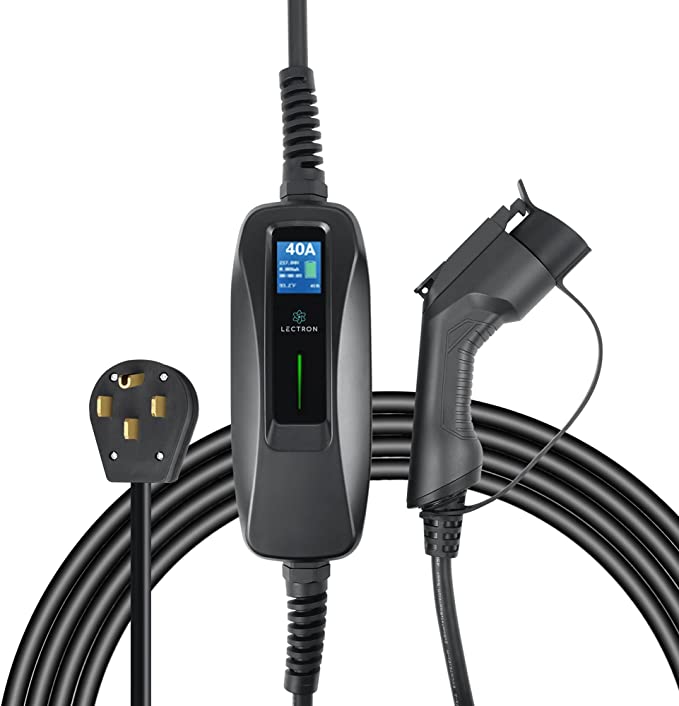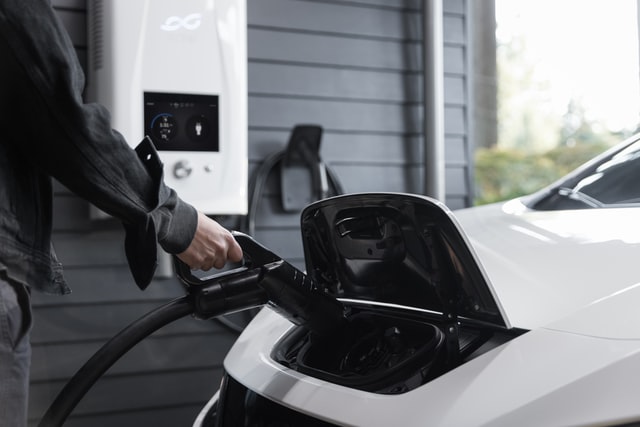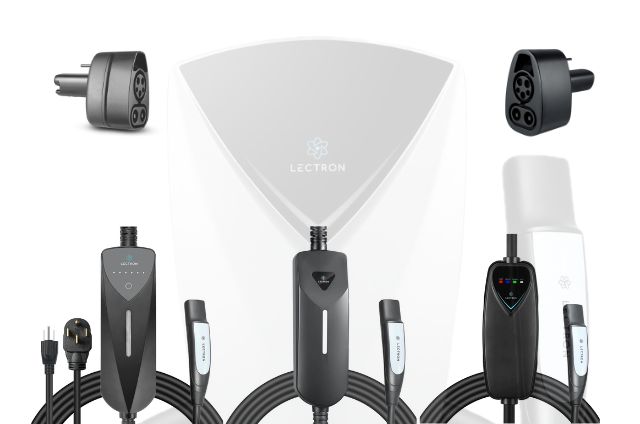Electric cars are becoming mainstream! Not only are their chargers better for the environment, but they’re also more efficient and cheaper than traditional gasoline-powered vehicles.
But if you drive an electric car, you’ll need a way to charge it. That’s where the electric car charger for home comes in.
There are a few things to consider when choosing a home EV charger, including its type, the installation process, and the cost. This article will discuss the different home EV chargers and what to know before you purchase.
Consider the answers to the following questions.
How Do You Charge Electric Cars At Home?
You must install an electric car charging point and invest in an EV charger to charge your car from home. Most home EV chargers are Level 2, which can charge an electric vehicle much faster than a Level 1.
The type of product you need will depend on the make and model of your car. For example, the Tesla Model S can only be charged with a Level 2 charger. Others, like the Nissan Leaf, can be charged with a Level 1 or Level 2 charger.
Charging time is another important consideration when choosing a home EV charging unit. A Level 1 charger will take much longer to charge an electric car than a Level 2. For example, it would take about 20 hours to charge a Tesla Model S with a Level 1 charger, but only about 4 hours with a Level 2 charger.
Also, don’t forget to check the amperage of your home EV charger. Most Level 2 chargers are 30 amps, but some are 40 or even 50 amps. The higher the amperage, the faster it will charge your electric car.
If you’re considering purchasing an electric car, check what type of charging station it requires. Not all of them are created equal, and you’ll want to ensure you get the right one for your needs.
Watch this video on how to charge your electric car at home.
What Is The Best EV Charger for Home?
The best EV charger depends on your individual needs and preferences. For example, a Level 3 charger is the way to go if you’re looking for a fast charger, but it’s not cost-effective. On the other hand, a Level 2 charger might not charge as fast, but it’s the better choice if you’re looking for an affordable option.
ChargePoint Home Flex Electric Vehicle (EV) Charger – 50 Amp, 240V
Part Number: CPH50-NEMA6-50-L23
The ChargePoint Level 2 electric vehicle charging station is a fast and efficient way to charge any EV. It can charge up to 9 times faster than a standard wall outlet and has flexible amperage settings ranging from 16 to 50 amps. It is compatible with a wide range of EV models, including Chevrolet Volt and Bolt, Hyundai Kona and Ioniq, Kia NIRO, BMW i3 and many more.
ChargePoint app allows users to schedule charging, set reminders, and use voice control through Alexa. The charging station is safe and reliable, with a 3-year warranty and 24/7 customer support. It is UL listed for electrical safety and ENERGY STAR certified for efficiency. It can be easily installed indoors or outdoors by an electrician, with the option for either plug-in or hardwired installation.
JuiceBox 32 by Enel X Way 32 Amp Level 2 Charger For Home
Part Number: 2JBO321RNA-HJWX-222
This JuiceBox is a 32 amp, 7.7 kW electric vehicle (EV) charging station that can charge up to 6 times faster than a standard wall outlet. It is suitable for indoor or outdoor installation and features a built-in cable rack and security lock. The charging station is UL listed and ENERGY STAR certified, with a 3-year limited warranty for normal residential use.
It is convenient to use, with WiFi connectivity through the free JuiceNet app, which allows users to control and monitor charging remotely, receive notifications when the car is fully charged, and set reminders to charge. The charging station is equipped with dynamic LED lights that show the charging status and can be controlled through Amazon Echo or Alexa. It is also energy efficient, with the ability to schedule charging times when rates are lower, and qualifies for local incentives and the Enel X JuicePoints program in eligible geographies.
It requires hardwired installation by a qualified electrician.
Autel Home Smart Level 2 EV Charger
Part Number: Maxi US AC LW12 DK
The Autel MaxiCharger AC Home is a high-speed electric vehicle EV charging station. It is suitable for use with all common EV models and can charge up to 50A at 12kW, adding 37 miles of range per charging hour.
The charging station comes with a 25-foot cable for convenient and stable charging. It is CSA certified and NEMA Type 4, making it eligible for the federal rebate program and protected against all weather conditions.
The charging station can be controlled through the Autel Charge app, which allows users to manage charging times, schedule charging while away, and optimize charging to take advantage of off-peak electricity prices. It is easy to install and comes with a 3-year warranty and support from Autel’s service team.
Grizzl-E GR1
Part Number: GR1
Grizzl-E claims that GR1 EV charging station is suitable for all weather conditions. It is compatible with all EVs and plug-in hybrid EVs sold in North America.
This UL-tested and certified home charger is eligible for the federal rebate program and has a range of safety features, including IP67 water resistance, fire resistance, and protection against over current, over voltage, under voltage, missing diode, ground fault, and over temperature.
The charging station also has self-monitoring and recovery capabilities. It can recover from power outages. It has adjustable amperage settings and a maximum current output of up to 40 Amps. This allows fast charging at rates of 28-30 miles per hour at 40A.
The charging station is easy to install, simply requiring the installation of a 14-50R outlet. It is portable for use at different locations. It has a NEMA-4 water and airtight metal enclosure and offers more power and output configurations than many other charging stations on the market.
Lectron NEMA 14-50
Lectron is known in the industry for providing some of the best EV chargers. Their chargers are reliable, easy to use, and affordable.
The Lectron NEMA 14-50 is a Level 2 home charging station that is designed to make the e-fueling process quick and effortless. It has a compact and durable design and is suitable for use with all J1772 EVs, the North American standard.
The charger has a maximum output of 40 amps and an input power of 240V. It is made of high-grade, rugged materials and provides shock protection and safety while charging in wet conditions.
The charger comes with a 1-year warranty from Lectron.
Ultimately, the best charger for you is the one that meets your specific needs and budget.
For example, suppose you’re looking for the fastest charger possible. In that case, Grizzly’s Level 3 charger is the way to go. This charger has a maximum charging power of 50 kW and can add about 60 to 80 miles of range per hour of charging.
Unfortunately, however, the Grizzly charger is also one of the most expensive on the market, with a price tag of over $1,000.
If you’re looking for a more affordable option, then the Lectron Nema 5-15 is excellent. This charger has a maximum charging power of 3.6 kW and can fully charge most electric cars in 8 to 10 hours.
In addition, the Lectron Nema 5-15 is one of the lightest and most compact Level 2 chargers on the market, making it easy to take with you on the go.
Lectron Nema 5-15 is also lovable for its easy installation. So you can get up and running quickly without the help of a certified electrician.
On the other hand, if your primary determinant for the best EV charger is the warranty, then go for the Tesla Wall Connector. It has a 4-year warranty which is quite long compared to other home EV chargers.
Whatever option you choose, ensure your charger is compatible with your car and meets your specific needs. By the way, you can always get a Tesla charger adapter if you have different vehicle makes at home.
Is It Worth Getting a Home EV Charger?
There are a few benefits to having a home EV charger. First and foremost, it’s more convenient than charging at a public station. You’ll never have to worry about finding an available unit or waiting in line to charge your car.
Additionally, home EV chargers are usually less expensive than public chargers. You can control when and how often your electric vehicle is charged, which can help extend its battery life.
It’s also possible to get a smart charger that does more than charge your vehicle. This smart charger connects your electric vehicle and the charging station to an app that allows all three to share data. You can monitor charging through the app from anywhere.
Many electric car companies offer incentives for purchasing and installing home EV charging units. For example, Tesla offers a $500 discount on its home charger when you buy a new Model S., And Nissan will install a Level 2 charger in your home for free when you purchase a new Leaf.
So, if you’re considering purchasing an electric car, it’s also worth considering getting a home EV charger. It’s a convenient and cost-effective way to charge your vehicle, and it can help prolong the life of your battery.
How Much Does an Average EV Home Charger Cost?
The cost of a home EV charger will vary depending on the make and model, but most chargers fall into the $500-$1000 range. Some higher-end models can cost up to $2500, but these are typically only necessary for commercial or industrial applications.
Moreover, the installation cost can also vary depending on the project’s complexity. Finally, it would also help to look for a home EV charger that offers a warranty, as this can give you peace of mind in case something goes wrong.
When choosing a home EV charger, it’s essential to consider both the upfront and long-term costs. In most cases, it is a wise investment that will pay for itself over time.
The installation cost may also depend on whether or not you need to upgrade your electrical panel. This upgrade is typically only necessary if you’re installing a Level 2 charger, as it requires a higher amperage than a Level 1.
The cost of upgrading your electrical panel can range from $500-$2000, depending on the size and complexity of the project.
Can I Install an EV Charger at Home?
Yes, you can install an electric vehicle charger at home. Most home EV chargers are Level 2, and they can charge an electric car in about four to six hours. There are dozens of options to choose from across several brands of EV chargers, so it helps to do a little research ahead of time.
Keep in mind that you’ll need to obtain a permit before you install an EV charger at your home. If you don’t feel comfortable working with the electrical components, you may want to hire a professional to install the charger.
Can I Install a Fast EV Charger at Home?
Fast EV chargers, also known as Level 3 chargers, are designed for commercial and industrial applications. They can charge an electric car much faster than a Level 2 charger, but they’re also much more expensive.
Additionally, these units need a lot of power in order to charge fast. Unfortunately, most homes don’t have the electrical capacity to support that. Therefore, installation can be complicated and expensive.
If you’re considering a fast charger for your home, consult with an electrician.
Safety is another important consideration when choosing a home EV charger. All chargers must be UL-listed, which means they’ve been tested and certified by Underwriters Laboratories. This ensures that the charger meets safety standards and can be used safely in your home.
Can I Install an EV Charger at Home Myself?
It is not recommended to install an EV charger yourself unless you have experience with electrical work. They should be installed by a certified electrician to ensure it is done correctly and safely.
An electrician will ensure your home’s electrical system is up to code. Level 2 chargers require more power than a typical household outlet, so your home’s electrical system may need to be upgraded to support the charger. Usually, this upgrade means that they will need to add a dedicated circuit for the charging unit.
Furthermore, most home EV chargers come with a warranty, which voided when a certified electrician doesn’t install the charger. As such, while the cost of hiring an electrician may sound like an added expense, it’s an investment in the long-term safety and reliability of your home EV charger.
Can I Plug an EV Into a Regular Outlet?
Whether to plug an EV charger into a simple outlet depends on the type of charger. For instance, Level 1 chargers, designed for slow charging, can be plugged into a regular 120-volt outlet.
Level 2 chargers, on the other hand, require a 240-volt outlet, the same kind that is used for major appliances like clothes dryers and stoves.
Most homes have at least one 240-volt outlet, but it’s essential to consult an electrician to ensure your home’s electrical system is up to code before installing a Level 2 charger.
Level 3 chargers, as we mentioned, require a unique high-voltage circuit.
What Are The Three Types of EV Charging?
Before you embark on your search for the best home EV charger, understand the different levels of these chargers. They will help you decide which type of charger is right for you and your home.
They range from Level 1 to Level 3.
Level 1 Chargers
Level 1 chargers are designed for overnight charging. Most electric vehicles come with a level 1 charger as an emergency cable. You can plug it into a standard 120V outlet, so they use electricity like any other appliances or electronics you plug into the wall.
These chargers typically add about 3 to 5 miles of range per hour of charging, so it can take up to 20 hours to fully charge an electric car with a Level 1 charger.
Pros:
- Affordable
- Compatible with most electric cars
- Most Level 1 chargers come with the car and don’t require special installation.
Cons:
- It can take up to 20 hours to fully charge a car
Level 2 Chargers
Level 2 chargers are faster than Level 1 chargers. Most Level 2 chargers require a certified electrician and a dedicated circuit during installation because they require between 208 and 240 volts.
These chargers typically add about 10 to 20 miles of range per hour of charging, so it can take 4 to 6 hours to fully charge an electric car with a Level 2 charger.
Pros:
- Significantly less charging time than the level 1 charger
- Most Level 2 chargers come with a warranty
- May increase home’s value as an upgrade
Cons:
- Your home’s electrical system may need to be upgraded
Level 3 Chargers
Level 3 chargers are the fastest type, and they are designed for public or commercial use. Also known as Direct Current Fast Chargers, level 3 chargers aren’t typically installed in homes because it’s not cost-effective. Level 3 chargers require a unique high-voltage circuit because they operate on direct current (DC) power. Only a certified electrician should handle and install a level 3 EV charger.
These chargers can add about 100 miles of range in 30 minutes, so it can take less than an hour to charge an electric car fully.
Pros:
- The fastest charger type
- Can charge an empty battery in 30 to 60 minutes
- Most Level 3 chargers come with a warranty
Cons:
- Your home’s electrical system would need an upgrade
- Draws significant power, making it costly
What Is The Most Common Type of EV Charger?
The most common type of EV charger is the Level 2.
Is a Level 2 Charger Worth It?
There are some notable perks to choosing a level 2 charger. It takes four to five hours to charge a car compared to the full day it takes with a level 1 charger. Plus, you get some additional features included standard with level 2 chargers, like locking mechanisms.
You can also find many level 2 chargers that are smart chargers with added capabilities. Wifi connections and apps that allow you to monitor energy usage can help you keep the costs in check.
On the flip side, a level 2 charger typically requires you to hire a professional electrician for installation. Plus, you will pay more to supply sufficient energy to the level 2 charger.
It’s a good idea to do your research before having a level 2 charger installed. You may not have to hire somebody to hardwire a new outlet because they can plug into 240V outlets. That also means you don’t need to obtain a permit for a new installation.
What Is The Best Level 2 EV Charger for Home?
A range of aspects come into play to determine the best level 2 EV charger. For instance, the best charger for your home might vary depending on the make and model of your car. Your budget and the installation process are also essential determinants.
Nevertheless, some of the best Level 2 chargers on the market include:
The Most Powerful: EO Mini Pro 2
This Level 2 charger is one of the most powerful on the market, with a maximum charging power of 7.2 kW. The EO Mini Pro 2 can fully charge most electric cars in 4 to 6 hours and comes with a 5-year warranty.
Another feature that makes the EO Mini Pro 2 stand out is its built-in WiFi, which allows you to monitor your charging process anywhere.
The Best Overall: JuiceBox 40
The JuiceBox 40 is one of the best overall Level 2 chargers on the market. This charger has a maximum power of 7.2 kW and can fully charge most electric cars in 4 to 6 hours. The JuiceBox 40 also comes with a 5-year warranty and 24/7 customer support.
In addition, the JuiceBox 40 features built-in WiFi, so you can monitor your charging process from anywhere. Finally, the JuiceBox 40 design allows easy installation so that you can get up and running quickly.
The Best for Tesla: Tesla Wall Connector
The Tesla Wall Connector is the best Level 2 charger for Tesla cars. This charger has a maximum charging power of 11 kW and can fully charge a Tesla car in about 8 hours. The Tesla Wall Connector also comes with a 4-year warranty.
In addition, the Tesla Wall Connector features built-in WiFi so that you can monitor your charging process from anywhere. Finally, the Tesla Wall Connector is easy to install.
What Is The Fastest EV Charger for Home?
The fastest EV charger for home is the Level 3 EV charger. They can charge a batter in half an hour. However, since Level 3 EV chargers use direct current (DC) power, installation costs make them extremely expensive for homeowners.
It’s more likely that a homeowner would choose a Level 2 EV charger, even if it can’t charge a vehicle as quickly as a level 3.
What Is the Most Powerful EV Charger for Home?
The most powerful EV charger depends on the make and model of your car. Each model has a maximum amperage, usually between 32 and 48 amps. It’s important to check the maximum amperage for your vehicle before shopping for an EV charger to ensure they are compatible.
The ChargePoint Home Flex is a smart charger that’s relatively small for the power it distributes. You can even adjust the power delivery, so this 50-amp EV charger can go as low as 16 amps.
A Tesla Wall Connector is almost as powerful at 48 amps, and it’s a smart charger with some helpful features for Tesla owners. That said, since the connector only works with Teslas, it’s not a viable option for other electric car models.
Beyond the ChargePoint Home Flex and Tesla Wall Connector, there are several chargers that top out at 40 amps.
What Is an EV Home Charger Tax Credit?
An EV home charger tax credit is a federal tax credit that helps offset the cost of installing a charger at your home. The tax credit is worth up to $1,000 and can be claimed on your annual federal tax return.
To qualify for the tax credit, you must install an energy-efficient charger certified by the EPA. Additionally, the charger must be installed at your primary residence and used to charge an electric car registered in your name.


